TRI Seminar Series
Cancer Metabolism Mini-Symposium
Come along to the second instalment of the TRI Seminar Series for 2024. This seminar will be presented as a mini-symposium on Cancer Metabolism. This session will feature presentations by special guest Professor Lisa Butler, as well as TRI based and external researchers with expertise in cancer metabolism.
Date: Friday 19 July 2024
Time: 11:00am - 1:00pm (Followed by a networking lunch till 1.30pm)
Location: TRI Auditorium or Zoom (Please register for Zoom login details)
REGISTER NOW
SPEAKERS
|
Professor Lisa Butler is a full-time academic researcher in the South Australian immunoGENomics Cancer Institute (SAiGENCI) and the Freemasons Centre for Male Health and Wellbeing (FCMHW) at the University of Adelaide, and is Director of the Solid Tumour Program at the South Australian Health and Medical Research Institute (SAHMRI). She holds key executive positions in the FCMHW, the Australian Prostate Cancer BioResource, the Prostate Cancer Foundation of Australia and the Australian and New Zealand Urogenital and Prostate Cancer Trials Group. |
|
Professor Gabrielli is a graduate of James Cook University in North Queensland and La Trobe University in Melbourne. He joined Mater in 2016 were he heads the Smiling for Smiddy Cell Cycle Group at the Mater Research Institute UQ. His research into the defects that drive cancer development, particularly defects in cell cycle control and DNA damage and repair signaling, has evolved into targeting these defects to selectively destroy cancer with these defects. |
|
I am a researcher at QUT’s Prostate Cancer Research Centre, part of the Centre for Genomics and Personalised Health where I head a small team examining the metabolic plasticity of cancer cells. Our aim is to identify metabolic mechanisms of therapeutic resistance and develop suitable targeting strategies that extend patient survival. I joined the Prostate Centre after completing a PhD in the UK examining lipid toxicity in the context of Type 2 Diabetes and a post-doc in the cell biology of adipocytes in obesity at (what was) the Diamantina, now Frazer, Institute. I was metabolism first and cancer second, which is a bias I enthusiastically pursue. Harnessing metabolic rewiring in therapy-resistant prostate cancer. |
|
Dr Julia Pagan performed her postgraduate studies in the laboratory of Professor Kum Kum Khanna at the Queensland Institute of Medical Research. Her post-doctoral work was performed at New York University Langone Medical Center under the mentorship of Professor Michele Pagano. Here, she studied the molecular and biochemical mechanisms by which cullin-RING ligases (CRLs) [particularly, SCF (Skp1-Cul1-F-box protein) ubiquitin ligase complexes also known as CRL1s] regulate cell growth and proliferation. In 2018, she moved to the School of Biomedical Sciences, UQ, to commence a teaching and research position. Her research program at UQ uses interdisciplinary approaches incorporating biochemistry, proteomics, molecular and cell biology to understand how individual ubiquitin ligase subunits specifically target their substrates. We focus particularly on understanding the regulation of centrosomes, microtubules and mitochondria. Corrupting the regulatory pathways that coordinate these organelles can have major health consequences and is the driving force behind many diseases, including cancers and neurodegenerative disorders. Mechanisms of mitophagy restriction |
|
Henry is a final year PhD student in the peptide therapeutics and membrane biology lab of Sonia Henriques. His project is focused on the development of peptides to target drug resistant melanoma. Henry began his PhD in 2021 with QUT, after completing a Bachelor of Science (Biomedical) honours at the University of Queensland in 2020. Bioactive peptides, a tool for targeting cancer metabolism |
|
Naomi Berrell is a Research Assistant at the Queensland Spatial Biology Centre. She graduated with a Bachelor of Biomedical Science First Class Honours from the Frazer Institute, Faculty of Medicine, The University of Queensland. Naomi has extensive experience applying spatial biology approaches across a number of solid malignancies to identify predictive tissue-based signatures for the development of predictive biomarkers. She has presented her findings at national and spatial user group meetings across Australia. Deciphering the tumour-metabolic landscape with spatial biology. |
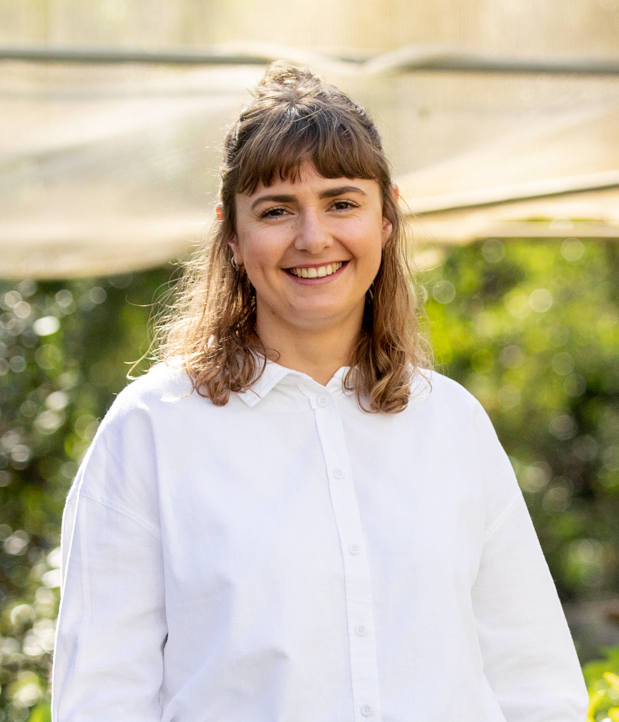
Dr Megan Crichton, Queensland University of Technology Dr Megan Crichton is a Research Fellow in Queensland University of Technology’s Cancer and Palliative Care Outcomes Centre. As an Accredited Practising Dietitian, she strives to promote the importance of nutrition for improving the health and quality of life of those affected by cancer. Megan’s clinical research explores the non-pharmacological and nutritional management of cancer-related symptoms and side effects to better support people through their cancer journey. Her PhD awarded in 2023 explored the novel interventions, mechanisms, and clinical considerations for the dietary management of chemotherapy-induced nausea and vomiting, with the spotlight on ginger. Dietary interventions for cancer-related symptoms |
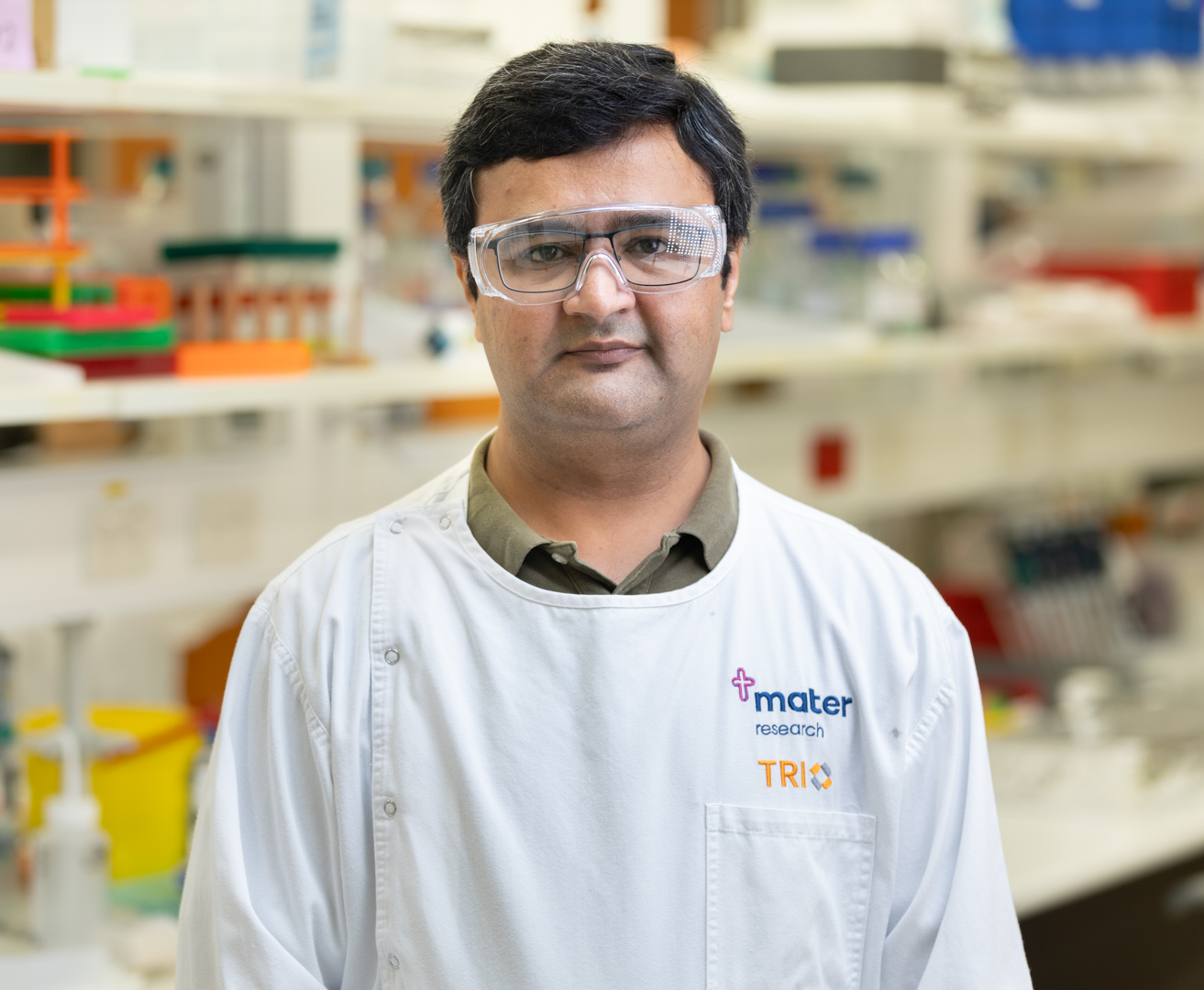
Dr Prahlad Raninga, Mater Research Institute Prahlad has completed his PhD in Cancer Biology and Experimental Therapeutics in 2017 at Griffith University. After completing PhD, he joined Prof Kum Kum Khanna’s lab at QIMR Berghofer as a post-doc. He currently working as a Senior Research Officer in Prof Khanna’s lab at MRI. During his post-doc, Prahlad’s work has been focused on developing novel targeted therapies for aggressive breast and ovarian cancers. Targeting MYCN-amplified high-grade serous ovarian cancers via inhibition of the proteasome and nucleotide metabolism. |



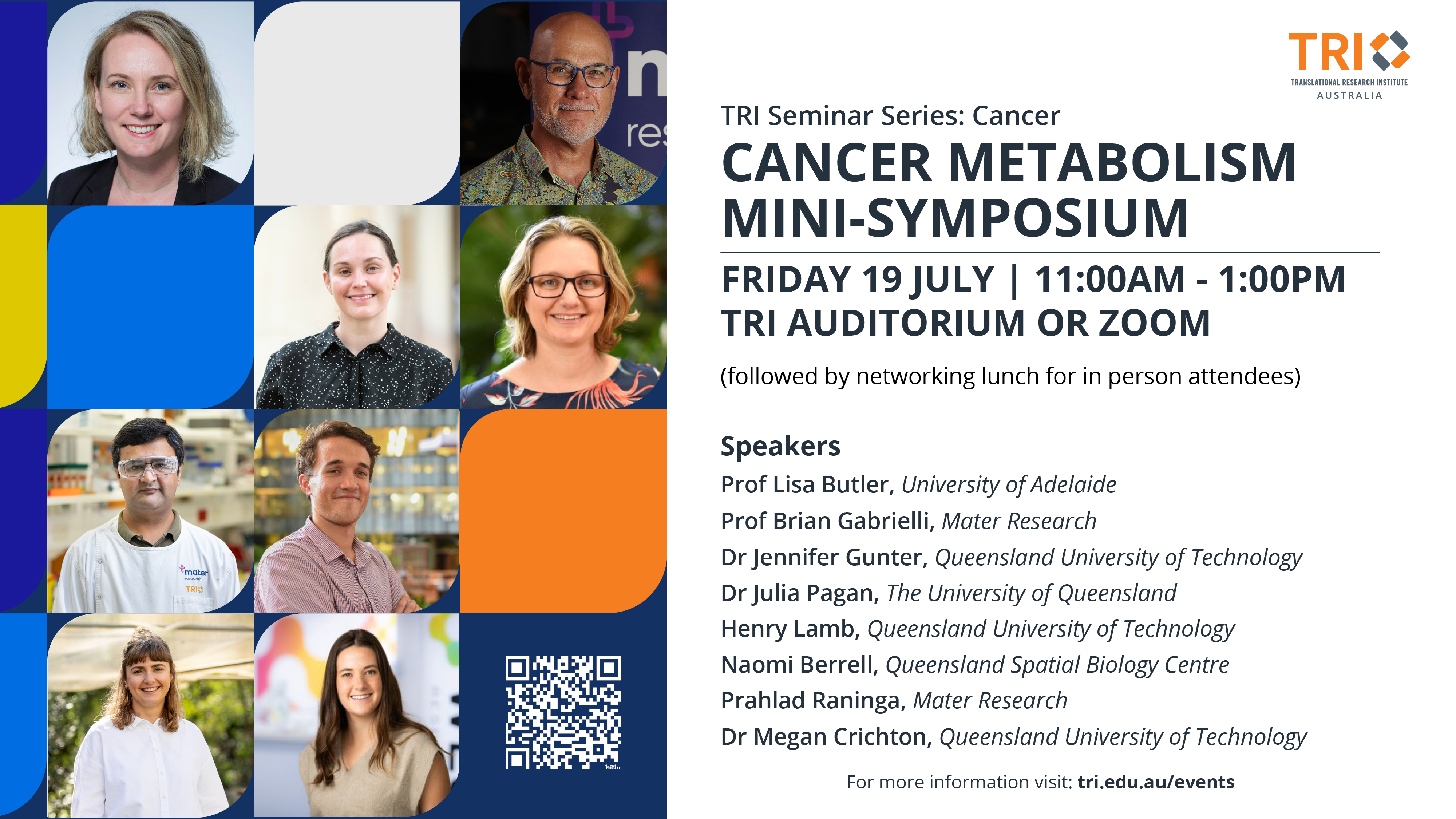
 Professor Lisa Butler, University of Adelaide
Professor Lisa Butler, University of Adelaide 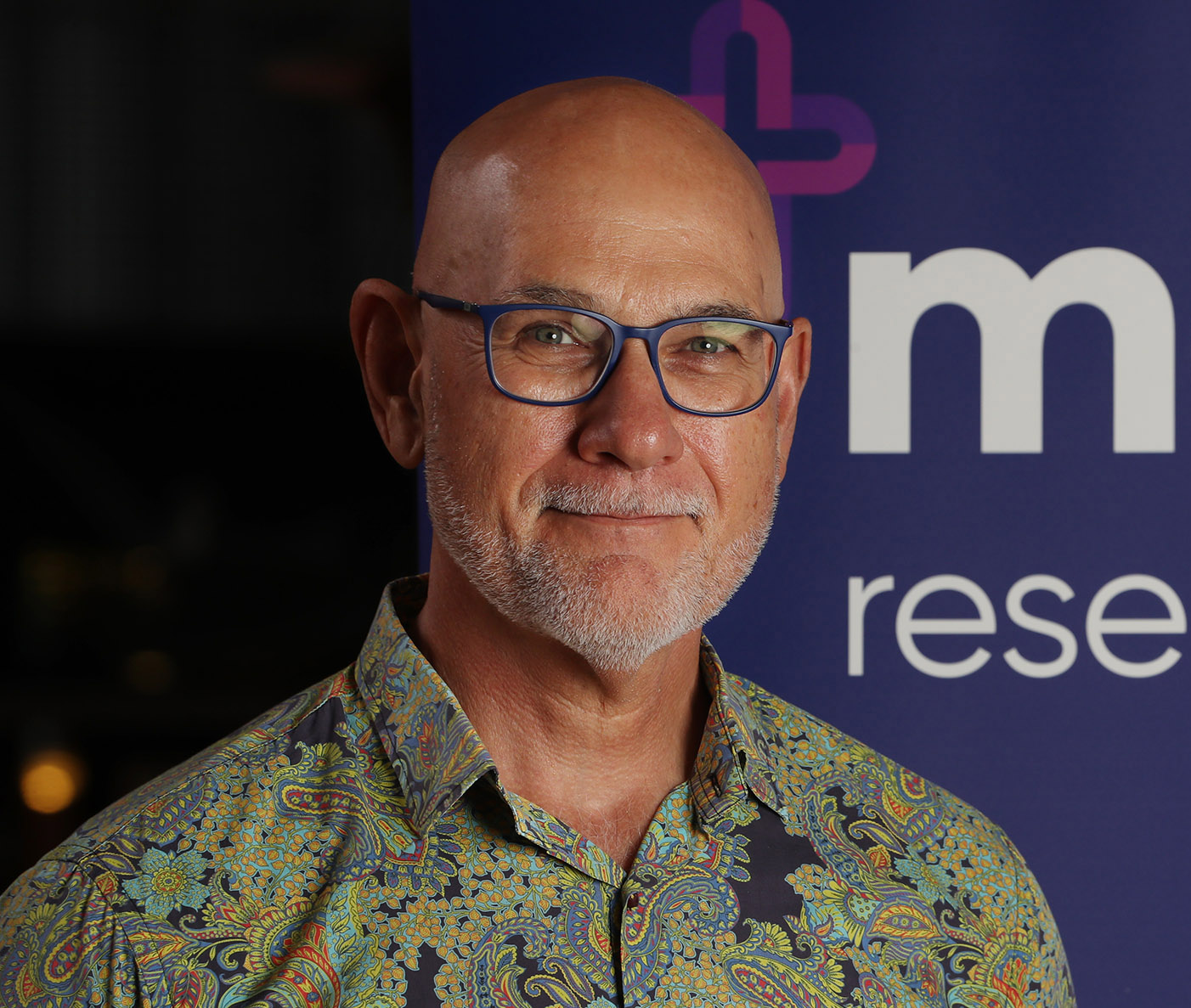 Professor Brian Gabrielli, Mater Research
Professor Brian Gabrielli, Mater Research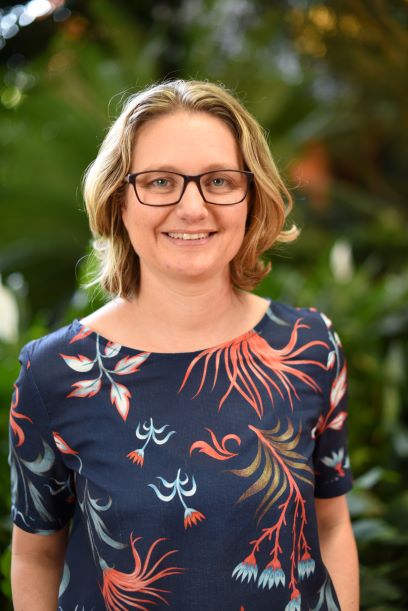 Dr Jennifer Gunter, Queensland University of Technology
Dr Jennifer Gunter, Queensland University of Technology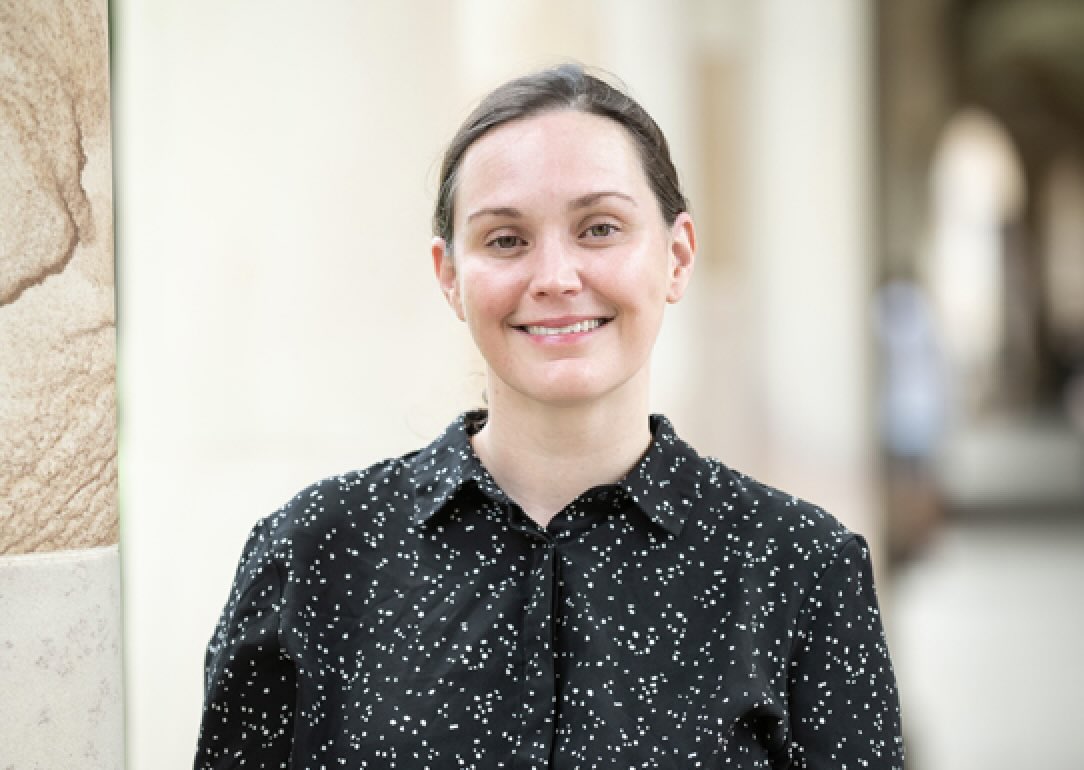 Dr Julia Pagan, The University of Queensland
Dr Julia Pagan, The University of Queensland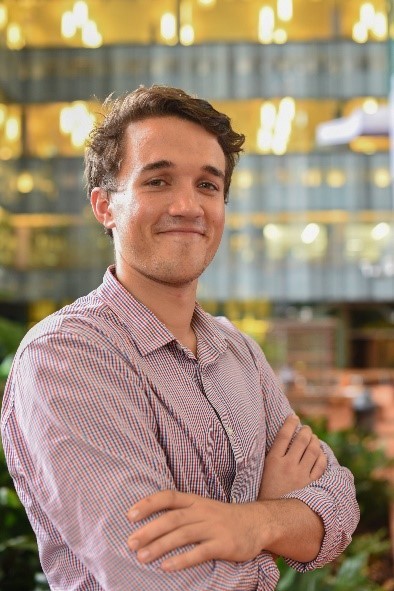 Henry Lamb, Queensland University of Technology
Henry Lamb, Queensland University of Technology Naomi Berrell, Queensland Spatial Biology Centre
Naomi Berrell, Queensland Spatial Biology Centre



